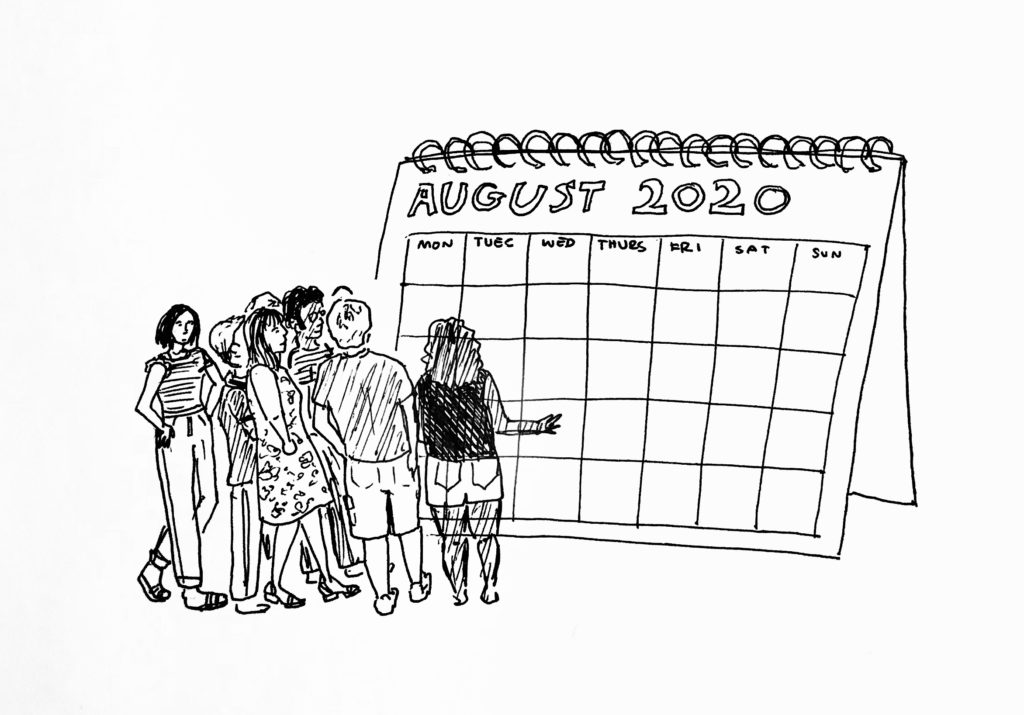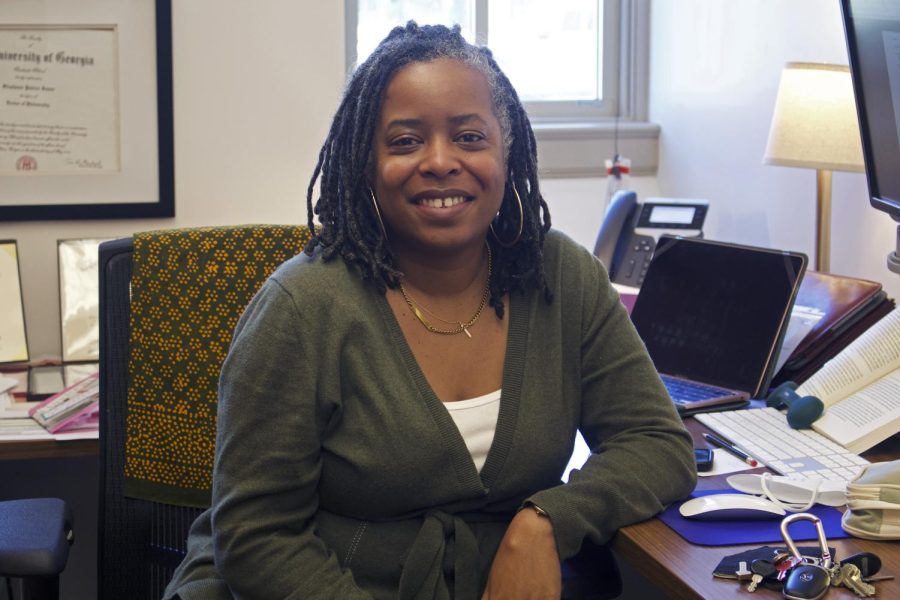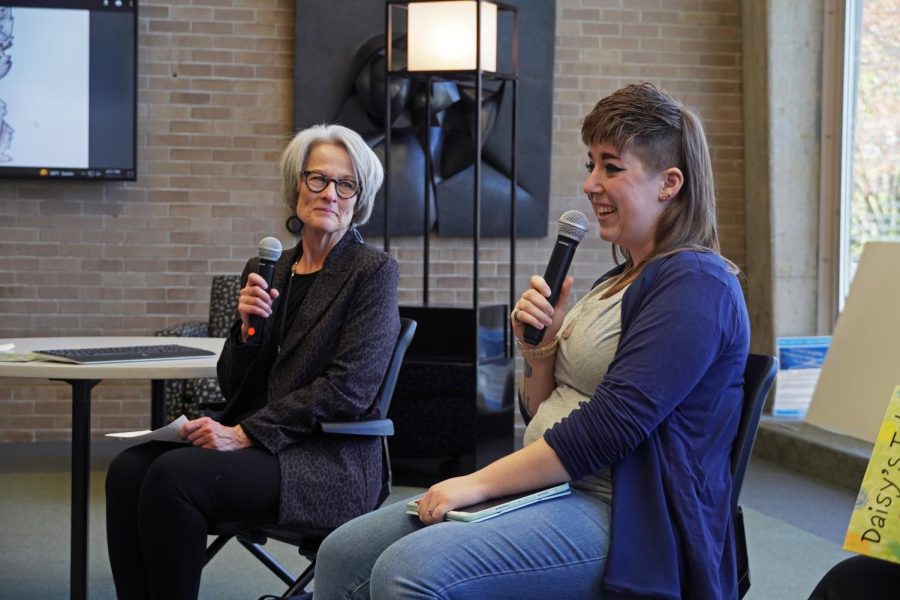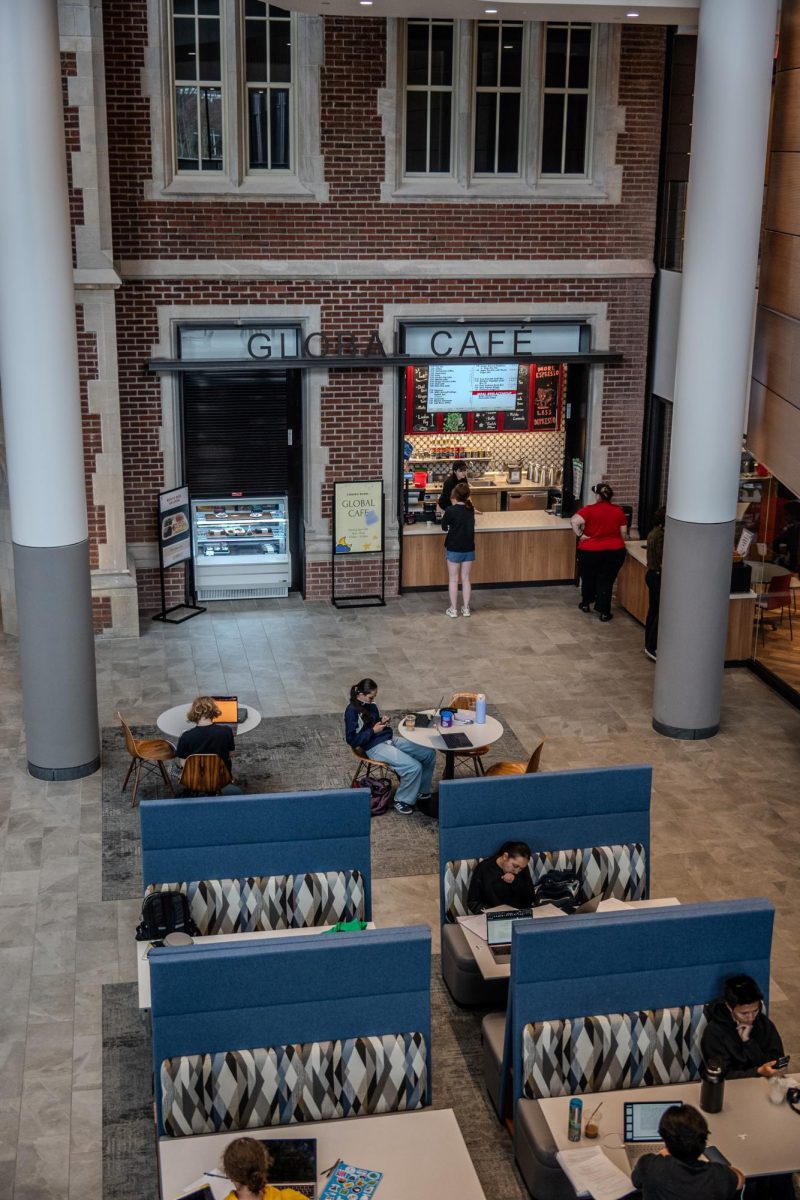Students are clamoring to know more about the fall semester at Grinnell College, but despite repeated assurances that a more detailed plan would be released in “early June,” no such announcement is imminent, according to Dean of the College Anne Harris, who will also be serving as Grinnell’s interim president after President Raynard Kington’s term ends.
Harris and Kington announced a series of forums for students and parents planned for May 28 and May 29, respectively, in an all-campus email. But on May 28, the Dean and President canceled the student forum in an email that asserted the administration would be working with the Student Government Association (SGA) to reschedule. Neither Harris, Kington nor any other member of the administration informed SGA of these plans prior to the May 28 email, according to multiple sources within the SGA cabinet
According to Harris, the forums were “originally going to be back to back, parents and students. And then we thought, ‘Wait a minute, wait a minute, we should be working with our student leadership.’ And so, we put [a] pause on it.”
SGA President Lana Katai ’20 said that she felt that SGA and the administration had been too distant in the process of planning and responding to COVID-19 before Dean Harris reached out to the cabinet. Katai, who spoke to Harris for the first time about plans for next year on Friday, June 5, attributed this disconnect to the turnover of a new school year. The new SGA president said she’s excited to be working with administration, and noted, “If you say you’re involving students, you really should be involving students.”
On June 5, SGA announced via email that they would be collaborating with the Department of Student Affairs to create “a comprehensive survey that solicits students’ feedback.”
While many students were under the impression that more information about the fall would be released the week of June 8, there is no definitive date set for the students’ forum or for the release of an official plan. Although Harris confirmed that a student forum will occur in the near future, she explained that the administration was putting emphasis on “deliberation and iteration,” and thus moving away from a massive release of information happening at one time.
It’s this delay, mixed with the perceived lack of official College communication, that is frustrating students. Another aspect of students’ frustration is the perception that students are the last to be informed of crucial decisions.
On June 5, Roll Call published an article that included quotes from Kington, who will be departing Grinnell for Phillips Andover Academy in the fall, explaining in some detail how Grinnell will be using a “low-density model” to bring students back next semester.
Although all the information Kington disclosed has technically been announced already, his communication with an outside news outlet rankled Grinnell students who feel that the College has not been clear with them about fall planning.
And while the student forum was cancelled, the parents’ forum went ahead as scheduled.
Hosted on WebEx, the forum was able to accommodate a thousand people. While Harris, Kington, Sarah Moschenross (Vice President of Student Affairs) and Joe Bagnoli (Dean of Admissions) spoke, the sidebar was alive with questions from students and their families.
Winnie Commers ’22 was one of the handful of students present at the parents forum. For Commers, the experience was positive. Although nothing was officially decided or announced, the debriefing helped her feel “more informed.” She especially appreciated the questions asked and answered in the chat during the forum.
“That aspect did help me feel informed,” she said. “I was not active in the chat, but a lot of parents were commenting, and Ben Newhouse and other administrators were there answering questions.”
Commers later posted a document outlining the information discussed during the forum in the Grinnell Current Students Facebook group. The document provides a summary of the speakers’ main points and includes a link to a complete transcription. The link, however, no longer works.
According to Harris, this transcript existed only as an ADA provision for hearing-impaired parents. “It was not an official transcript,” said Harris. “And it’s not a document that we would want to have circulating because it was a timely provision for hearing impaired audience members.”
Commers appreciates the effort that administrators are making to open the conversation, but she wants more voices to be included. “I feel like if they wanted us to be truly part of the conversation, they would have had a call with students already and maybe even had more than one.”
Commers is not alone in this desire.
Alexi Canzoneri-Vanture and their roommate Akshat Tiwari, both ’23, worked together to spearhead a petition demanding student voices be considered when planning for the upcoming year.
“The issue I have,” said Canzoneri-Vanture, “[is that] they would make a decision without considering student voices in a very broad way. For them to make a decision and then be like, ‘Hey, you guys, like, despite the fact that some of you were paying like $70,000 a year, this is what we’re going with,’ you feel like you have very little voice in the decision-making process.”
Collaborating with many others, Canzoneri-Vanture and Tiwari created a Google document titled, “Handbook for Action Fall 2020” that has now been shared widely. They also created a survey in hopes that students would provide them with more information and concerns, and an Instagram page, @grinnellstudentresponse, which advocates for transparency on the behalf of administration.
“I just wish they would come out and say, ‘We’re not really sure what, like, what we’re going to end up doing and we need your voice to figure it out,’” said Canzoneri-Vanture. “Because it seems like that’s what they want. They want to listen to student voices, but they don’t want to actually acknowledge to the students that they have any kind of power in this decision making.”
For Harris, the lack of official communication and planning on the students’ behalf comes naturally with the College’s inclusive problem-solving strategy. Instead of telling students what is happening in the 2020/21 academic year, she wants to open the conversation up to students, parents, faculty and staff.
“I really want it to be conversational,” said Harris. “I think that’s why we wanted to work with student leadership. How can we create a kind of back and forth? Because the people who are planning have tons of information. They’re reading public health articles every single day. … And so, we find ourselves in this like, ‘Oh, wait! I have to tell you everything’ mode. And we’re losing the ability to have a conversation.”
According to a campus memo released on June 1, the only thing that has been decided thus far is that the College will continue to move forward with its “low density model,” bringing smaller groups of students back to campus. Beyond that, logistics are being worked through by a response team prioritizing public health.
In a memo on May 22, prior to the parent WebEx conference, the College also announced that it has contracted with the private testing firm Tempus to guarantee “capacity for initial and regularized diagnostic COVID-19 testing for students, faculty and staff who will be on campus.”
In the Roll Call article, Kington noted that the College expects to have about 600 tests available every week.
Harris, who is working closely with the COVID-19 response team, said that while she and other administrators want the decision-making process to be open and responsive to student concerns, there have been some shortcomings. She urged students to routinely check the College’s COVID-19 response page and read campus memos carefully.
“This isn’t what Grinnell is going to be like forever,” she said. “But what can we learn, especially from students and their experience, is what it means to live within a public health model; what it means to live within a community model where the common good is the air we breathe.”




























































